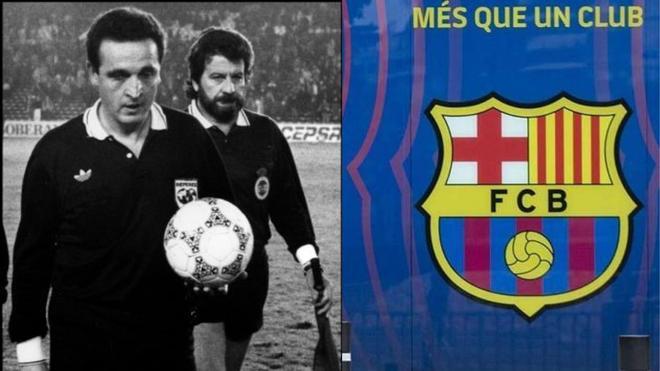
The Shadow of Scandal: Corruption in Football
Corruption is when individuals act badly to get power or money. This problem is widespread and affects many industries, including the football industry. While football should always be about having fun and being fair, that’s not always the case. People commit dishonest acts that anger fans and athletes.
Spanish football, and in particular FC Barcelona, has been at the heart of a corruption case in the past few months. Jose Maria Enriquez Negreira, a former vice president of the Technical Committee of Referees (CTA), was the subject of the Negreira case, in which Barcelona was accused of paying him almost 7.3 million euros between 2000 and 2018.
Negreira was reportedly employed by FC Barcelona as an outside consultant, and his primary responsibility was to deliver reports about professional referees. Negreira asserted his position and stated that everything said was untrue. This ongoing scandal implicated many club presidents from Josep Maria Bartomeu to current president Joan Laporta.
Furthermore, Mr. Laporta denied all these allegations and stated during one of his news conferences that all the news that had been circulating in Spanish media reports was simply a made-up attack on FC Barcelona. Indicating that Madrid, its greatest rival, was primarily responsible for the claims. Four years after the last time they won the Spanish league, Laporta said to Catalan radio TV3 that now that they are enjoying one of its best runs in recent years, Real Madrid is trying to harm the club’s reputation by spreading rumours across the media.
The primary concern that football fans have in relation to this controversy is: Why would a club as powerful as FC Barcelona pay a referee such a large sum of money over the course of almost 20 years to get decisions in their favour? If you look closely at the various aspects of this case, it is very shocking. A club like FC Barcelona has completely different resources than the other clubs in Spanish football, making them appear as though they are competing in a different league. This demonstrates once more how crucial the power structure between the high spheres in various organisations is.
In order to listen to FC Barcelona supporter’s honest opinions about the situation affecting his team, Nacho said the following: “I think that a football team cannot pay referees for talks and give them information about how the different referees in the league whistle, but at the same time I believe that in the sports field, there aren’t any affected areas, in fact on many occasions FC Barcelona was much more harmed than favoured.

On the other side, I believe that FC Barcelona should face an economic punishment rather than a penalty measured in terms of points or categories.”
Nacho’s version as a supporter of FC Barcelona indicates, of course, the protection of his team by claiming that the case cannot be real because, in terms of referee decisions, for the previous couple of years, the situation has been the reverse. Part of that relates to the potential repercussions that the club might encounter in the future.
Edu a Real Madrid supporter from Spain, offered his opinion and suggested a course of action that had been followed in a similar situation in the Italian league: “What happened with Juventus in the Serie A and the decisions that were taken afterward should serve as an example of the next steps that should be taken in this case, reduction of points in the league table and a ban from European competitions.”

Of course, his viewpoint differs greatly from Nacho’s because both express a strong desire for the best outcome for the teams they support. The most intriguing element of what Edu said, however, is that similar corruption incidents do occur elsewhere, such as in Italy, even though each country uses different criteria when judging corruption.
Following further investigation, additional occurrences in several European nations in this instance, in Belgium have occurred in recent years.

Operation Clean Hands, which consisted of a total of 9 different clubs from the Belgian first division, was the case in this instance. Quinten, a loyal supporter of KV Mechelen, one of the clubs implicated in the scandal, decided to speak up about his opinion about corruption in the football world: “Everything is about politics, friends, connections, and I know that big clubs like FC Barcelona, Anderlecht, or Real Madrid have been involved in this type of scandals because they have the money and all the other possible resources to form part of this scandals and hide the cases.”
As you can see, this topic has been kept secret for a very long time, and there is still more to be done. Quinten’s interesting take on the subject illustrates a truth that has been circulating for many years among the top European football leagues.
The best teams in European football are clearly separated from the rest by a significant gap, which means that the other clubs are competing not only with them but also with other benefits that are given to them in different ways. The next major issue is: What will the future of European football look like in the coming years?
Text: Raúl Pérez Castellanos
Images: © Raúl Pérez Castellanos



